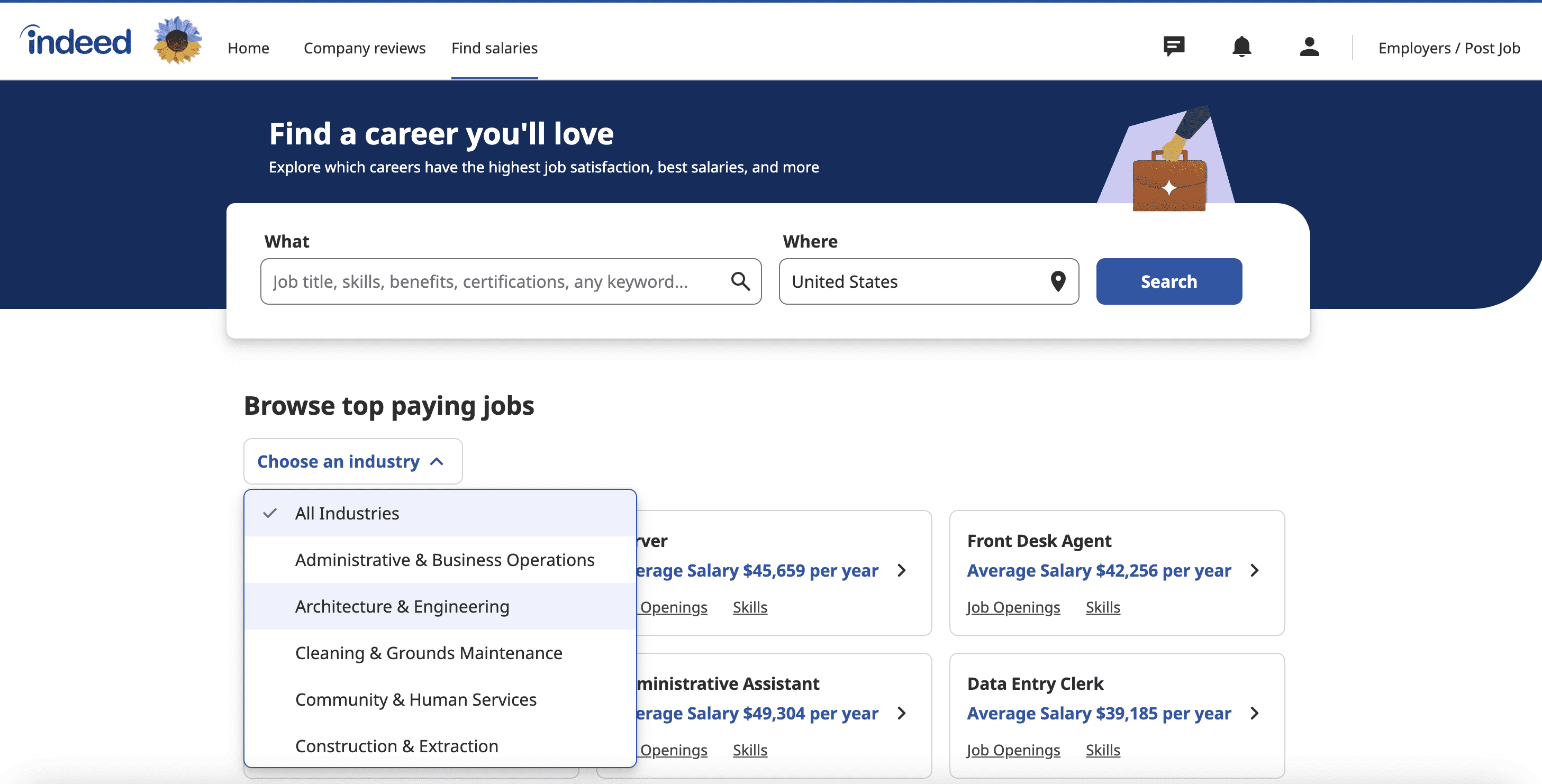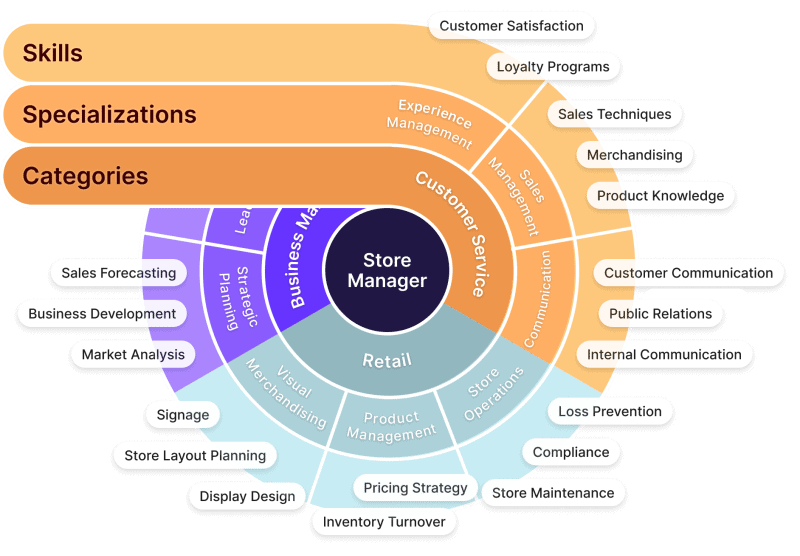Making the decision to transition from a higher paying job to a lower salary role in pursuit of a better career path can be a challenging choice. Many people in my network are constantly debating with themselves if they should leave their comfortable and well paid role for something where – even with a salary slightly lower – they can actually grow and learn new things.
This is a real problem not only for people looking for a new job but also for people that all of a sudden feel stuck in their career: sometimes you can’t find something “better” than what you have (especially when the economy is not great) but you find positions that are different, with more potential in the long run and compromises in the short term. Your attitude plays a vital role but at Anthropos we believe that people can learn and adapt in their career, and sometimes a lot of people that I know would really make that jump if they had someone coaching them on the pros and cons of that choice.
Today we try to build a set of arguments to evaluate these opportunities and we will do so testing some of the common myths related to this choice, like job stability.
This article is not about considering your age, economical situation and other constraints. We are skipping those assuming you know what you can accept from that perspective. My goal here is giving you a different perspective on this choice: it’s easy to dismiss a new opportunity just looking at the economic aspect, but sometimes when you take a long approach you see immediately how that would be a better option for you and it would probably make you happier.
What are you trading in exchange of a lower salary and title?
It is crucial to remember that growth and development often occur outside of our comfort zones. Embracing new challenges and expanding our skill set can open doors to opportunities we may not have encountered otherwise. That’s really where we should start. If you put aside your salary and title for a second you will discover a variety of things you might be missing in your role:
- A clear growth path – something that talks about new challenges, and not just a better salary. A path that you know and it’s there, not a vague promise you hope your manager will mention again one day.
- Learning new things – that was there when you started years ago, but when was the last time you felt excited about your working day? and what was the last time you learned something new? Now many blog posts talk about generic “skills and things” you learn. What I am talking about are concrete projects where you are given something to build you don’t have any experience with. If you are in finance for instance, that might be managing a new business unit P&L, or getting to understand a business model your are not familiar with. If you are a product manager, it might be building a new feature in an industry you know nothing about.
- A more stimulating environment: this is something that people ignore while picking a new job, but in my experience having amazing colleagues makes up for a lot of other things. There might be an opportunity where you decide to take a risk because you love the people and culture there and you feel like you could grow so much exchanging ideas and projects with them on a daily basis.
- Better manager, someone that cares about you: this is enough in so many situations to convince people to accept a lower salary with better future outcomes. Your manager influences your day more than what you want, but a great manager, one you learn from and respect, can completely transform your career.
- A large set of skills and experience: this is really based on your age, but if you are in your 20s, 30s or 40s every year that you spend not learning new skills and experimenting new things, is a year you really lose in the long term. You are not investing in building skills and experiences that you will make advance faster in the future. I’ve seen this a lot in tech companies: great talent that stay in companies that are slow to adopt frameworks and technologies: when they finally leave they pay a big price and their “value” has decreased much more than what they thought.
- Personal happiness: we will dive deep into this but your job is something that will occupy a big chunk of your day and has giant consequences on your happiness. We all need to feel appreciated, motivated and fulfilled.
So, if you are considering a lower salary in a company that feels like a better bet, read this list of points and see if they are there. That’s what you really need to consider, because if you do and you make the right bet, the salary will be a consequence of your choice and not a cause anymore.
Start with your skills and the market demand
Before making the decision to move to a lower salary role, it is essential to assess your current skills and their relevance in the job market. Identify the skills that align with your desired career path and conduct thorough research to understand the demand for those skills. If your current skill set is in high demand, transitioning to a lower salary role that provides opportunities for growth and learning can be a strategic move and you know you will be able to accelerate your growth and increase your salary sooner than later.
If you are a software engineer or a product manager – just to mention two roles that are in high demand – you can afford to take a bigger risk because you know that you will always be able to find an alternative if things don’t work out. This is even more true if your skills are very specific (e.g. Product Manager for SaaS companies in the health space): you should absolutely consider a lower salary in exchange for a better future. In the worst case you will find another job, with a high salary.
What’s the value of your skills in a different industry?
The same skills can have completely different outcome in different industries. This is key to consider because you might have skills that will likely make you grow faster in a new industry. Think about a very technical software engineer that moves from a large tech company to a smaller company in the automotive industry. The impact he can have with those skills might be 10x compared to the tech company and that by itself will accelerate his career in the medium term.
In a moment where many jobs are changing and industries are adopting AI, automation and clean-tech, this is critical to consider in relation to your skills.

Indeed is a good starting point to look at salaries for similar skills across industries.
Salary and career: put things into the right perspective
These are two things that are difficult to compare in my opinion and sometimes people look at them without the right perspective. Unless we are talking about a big difference in salary (e.g. $50k vs $100k in annual salary), in most cases the salary difference is just something you need to justify to yourself if you can still afford a similar life style. Making $50k/year or $61k/year will rarely make a big difference for you in the medium term, but learning new skills daily and getting exposed to a better career path will absolutely make a difference for you. Most importantly you will likely recover that salary gap in a few years, with a job that evolves faster. Even if that doesn’t happen, you will be able to spend your newly acquired skills somewhere else, this time for a higher salary.
Now, I know every situation is different and $10k/year can be a big difference for someone starting a family, for example. The point here is different: the difference in salary rarely justifies not moving to another place where growth and skills are 10x better and faster than your current job. You can’t simply compare the two.
Many years ago I hired a person at Cloud Academy that took a big cut to join what was a small and thriving startup of 20 people. He gave up a stable job, in a large organization, where after a year he was already stuck. Years later that person has now moved from an individual contributor role to a manager, he learned a ton and his salary has probably doubled since then just in 5-6 years. He has skills he could easily apply to many other high-paying roles in the market.
Job stability
It’s difficult to leave something we feel is very secure for the unknown: job stability is the elephant in the room for many. But in a world where companies are constantly challenged by big disruptions (AI, automation, COVID – just to name a few), the entire concept of job stability doesn’t make any sense anymore. Large orgs are constantly going through reorganizations that include layoffs and so many of the companies that were perceived as stable and secure just fifteen years ago, are not there anymore. 2022 and 2023 showed us how difficult it is to consider yourself “safe” at large companies like Meta, Google or others.
I would not use the job stability parameter as part of your decision: things are constantly changing, and companies are more agile than the past. Instead of relying on that, try to imagine how you can rely on your skills and on constantly acquiring new ones. That will definitely give you an edge even in a tough market.
Personal fulfillment and the consequences it will have on your life
This is really important in your consideration. We all work 8-10 hours per day in our lives and even if we don’t want to, our job is a big part of what we do in our lives. Feeling fulfilled is the most important thing you should pursue: there is no salary or benefit that will make up for this, at least not for too long. Many people simple move into a lower salary because that means working on something they love, that makes them feel better in their life.
Together with the ability to grow skills that you would lose otherwise, I think this should be the most important criteria in this framework.
Talk to people in your network
Finally, the best thing you can do is picking the brain of a few people that have no feelings about your choice. They will help you see the advantage and disadvantages in an easy way. If you don’t know anyone in your network, I would suggest to reach out to people that have done something similar on LinkedIn and ask them what they evaluated – in alternative, try to talk to people that have more experience in your role, they have been in your shoes before and it will be easy to back their suggestions with real examples.
Final thoughts
I am sure there are more things to consider. Before I finish here, remember that while a lower salary may be a temporary setback, it is important to consider the long-term earning potential associated with a better career path. By acquiring new skills, gaining valuable experience, and taking on increased responsibilities, you position yourself for future promotions, salary increases, or even the potential to pursue higher-paying roles in the long run. This forward-thinking approach can outweigh the immediate financial implications of a lower salary.
Stefano
May 24, 2023


